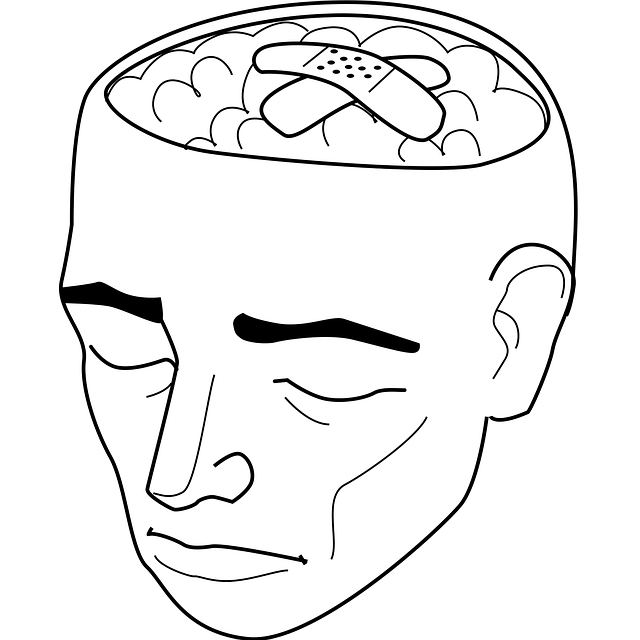Littleton Chronic Illness Therapy emphasizes proactive self-care strategies, including exercise, mindfulness, and communication skills, to manage mental health conditions effectively. Therapists guide personalized approaches integrating stress management and adaptive coping techniques for sustainable self-care plans. Mindfulness practices enhance well-being, foster self-awareness, and improve mood/stress management. Building healthy habits like proper nutrition, exercise, and sleep significantly impacts overall health. Social connection through groups offers support, boosts confidence, and enhances resilience, crucial for navigating health journeys successfully in a tech-driven world.
“Enhancing self-care practices is a powerful tool in managing chronic illnesses, as evidenced in Littleton Chronic Illness Therapy. This article explores the transformative impact of self-care on patients’ overall well-being. We delve into understanding self-care, identifying personal needs, and incorporating effective techniques. From mindfulness and relaxation to building healthy habits and fostering social connections, discover practical strategies for a holistic approach to wellness. Learn how these practices can be tailored for optimal results in Littleton Chronic Illness Therapy.”
- Understanding Self-Care and Its Impact on Chronic Illness Management
- Identifying Personal Self-Care Needs in Littleton Chronic Illness Therapy
- Incorporating Mindfulness and Relaxation Techniques for Daily Well-being
- Building Healthy Habits: Nutrition, Exercise, and Sleep for Energy Levels
- Social Connection and Support Networks: Overcoming Isolation Challenges
Understanding Self-Care and Its Impact on Chronic Illness Management

Self-care is a crucial aspect of managing chronic illnesses and plays a significant role in improving overall well-being. It involves intentional activities that nurture both physical and mental health, enabling individuals to maintain a sense of balance and control over their lives. For those navigating chronic conditions like depression or other mental illnesses, self-care becomes an essential tool for coping and prevention.
At Littleton Chronic Illness Therapy, we emphasize the impact of proactive self-care strategies. By incorporating practices such as regular exercise, mindfulness techniques, and effective communication strategies, individuals can reduce symptoms, enhance their quality of life, and even mitigate the effects of mental illness stigma reduction efforts. These simple yet powerful tools can foster a sense of resilience, empowering those affected to manage their conditions effectively and promote long-term mental wellness.
Identifying Personal Self-Care Needs in Littleton Chronic Illness Therapy

In Littleton Chronic Illness Therapy, identifying personal self-care needs is a pivotal step in managing long-term health conditions effectively. Many individuals living with chronic illnesses often face unique challenges that demand tailored approaches to self-care. Therapists play a crucial role in guiding patients through this process, helping them understand the importance of prioritizing their mental and physical well-being. By integrating practices such as stress management techniques, mindfulness exercises, and adaptive coping strategies into daily routines, patients can significantly enhance their overall quality of life.
This personalized approach goes beyond addressing symptoms; it involves empowering individuals to create a sustainable self-care plan that incorporates risk management planning for mental health professionals. Through regular therapy sessions, patients learn to recognize triggers, set boundaries, and develop healthy habits that alleviate anxiety relief while fostering resilience in the face of chronic illness challenges. Such proactive self-care practices not only improve symptoms but also contribute to better long-term outcomes in Littleton Chronic Illness Therapy settings.
Incorporating Mindfulness and Relaxation Techniques for Daily Well-being

Incorporating mindfulness and relaxation techniques into your daily routine can significantly contribute to your overall well-being, especially when managing chronic illnesses in Littleton Chronic Illness Therapy settings. These practices allow individuals to develop a deeper sense of self-awareness and control over their mental health. Through mindful meditation and breathing exercises, one can learn to navigate stress, anxiety, and even pain more effectively. Such techniques foster a calm mind and body, enhancing overall mood management skills, which are essential for maintaining stability during challenging times.
By integrating relaxation practices, individuals can improve their coping skills development and better manage symptoms associated with chronic conditions. This may include reducing tension in the body, improving sleep quality, and boosting emotional resilience. Social Skills Training can also benefit from these mindfulness techniques as they encourage present-moment awareness and empathy, fostering healthier interactions and relationships.
Building Healthy Habits: Nutrition, Exercise, and Sleep for Energy Levels

Building healthy habits is a cornerstone for improving self-care and managing chronic illnesses. Nutrition plays a significant role in energy levels; incorporating nutrient-rich foods into your diet can significantly impact your overall well-being. A balanced meal plan, rich in fruits, vegetables, lean proteins, and whole grains, ensures your body receives the essential vitamins and minerals to function optimally.
Regular exercise is another vital component of self-care. Physical activity boosts energy levels, improves mood, and strengthens the body. Whether it’s a brisk walk, yoga session, or joining a fitness class, finding an exercise routine that suits your needs can be empowering. Adequate sleep, ranging from 7-9 hours for most adults, is often overlooked but crucial for stress management and overall health. It allows the body to rest, repair, and rejuvenate, leaving you energized and ready to tackle the day. Incorporating these habits can be a game-changer for individuals with chronic illnesses, as it enables them to take control of their well-being through simple yet effective self-care practices, such as those offered by Littleton Chronic Illness Therapy, Stress Management Workshops Organization, and the provision of Crisis Intervention Guidance and Stress Reduction Methods.
Social Connection and Support Networks: Overcoming Isolation Challenges

Social connection is a vital aspect of overall well-being, especially for individuals managing chronic illnesses. In a world where technology often fosters isolation, it’s essential to prioritize building and maintaining support networks. This becomes even more critical when dealing with health challenges that can leave one feeling disconnected from their peers. At Littleton Chronic Illness Therapy, we understand the profound impact social connections can have on mental and physical health.
Overcoming loneliness requires a conscious effort to foster relationships that offer encouragement, empathy, and understanding. Support groups, both in-person and online, provide a safe space to share experiences, gain insights from others facing similar struggles, and build a sense of community. This interconnectedness can significantly boost confidence and emotional intelligence, empowering individuals to navigate their health journeys with renewed resilience.
In conclusion, enhancing self-care practices through tailored strategies like mindfulness, healthy habits, and social connection can significantly improve chronic illness management in individuals attending Littleton Chronic Illness Therapy. By addressing personal needs and adopting sustainable lifestyle changes, participants can achieve better energy levels, reduced stress, and an improved overall well-being. This holistic approach empowers individuals to take control of their health journey and cultivate a more vibrant life despite chronic conditions.














